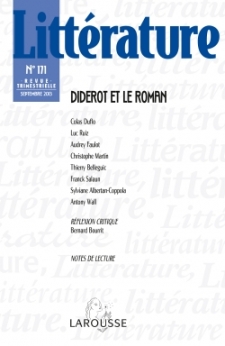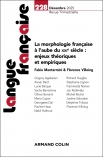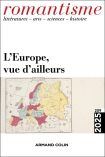
Littérature nº 171 (3/2013)
Pour acheter ce numéro, contactez-nous
Recevez les numéros de l'année en cours et accédez à l'intégralité des articles en ligne.
Le Neveu de Rameau peut être aussi bien assimilé à une satire ou un dialogue philosophique qu’à un roman. Mais Diderot réagit en l’écrivant contre le romanesque en vogue à son époque ; il renonce au modèle richardsonien qui associait attendrissement et édification morale. Au « démon de la présence » cher à Roger Kempf s’est substitué, à partir du Neveu de Rameau, le démon de la critique, qui relie intrinsèquement roman et philosophie.
Rameau’s Nephew can just as well be read as satire or as a philosophical dialogue as as a novel. But Diderot in writing it was reacting against the concept of the novelistic in fashion in his time ; he is giving up on the Richardsonian model associating sentimentalisation with moral edification. To the “demon of presence” dear to Roger Kempf has been substituted a demon of critique which intrinsically links philosophy and the novel.

